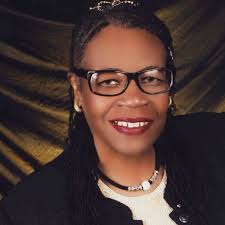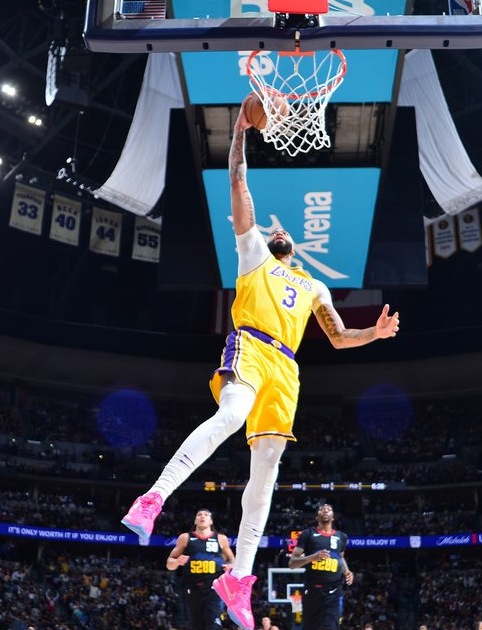By Ray Richardson
Contributing Writer
Back in 1987, former Los Angeles Dodgers Vice President Al Campanis ignited a movement when he casually said on national television that African Americans “don’t have the necessities” to manage major-league baseball teams.
Thirty-five year later, do National Football League team owners have similar thoughts about African Americans aspiring to be head coaches?
Of 16 openings for head coaches over the past two years, only three went to Black candidates, The NFL’s hiring trend of Black coaches, a subject of criticism for decades, was exposed to unprecedented levels with the class-action lawsuit filed against the NFL by former Miami Dolphins head coach Brian Flores Feb. 2.
Flores’ lawsuit, claiming discrimination and unfair hiring practices, has dumped negative publicity on the NFL as the league prepares for Super Bowl XVI at SoFi Stadium in Inglewood Feb. 13. Seeing the significance of Flores’ legal push, civil rights leaders have gotten off the bench and expressed their dissatisfaction with a league where about 70% of the players are Black.
“While the NFL has begun making strides with regard to social justice and racial equity, it’s clear that voices of color are not being entirely heard in the executive suites,” the Rev. Al Sharpton, president of the National Action Network, said in a statement after he and several civil rights leaders had a virtual meeting with NFL Commissioner Roger Goodell Feb. 7.
Sharpton was joined by National Urban League President Marc Morial, NAACP President Kenneth Johnson and other leaders to discuss their disappointment with the league’s lack of Black head coaches. Only three of the NFL’s 32 teams have a black head coach, and two of them were hired within the last week.
The civil rights leaders also urged Goodell to get rid of the controversial Rooney Rule, an initiative the league created in 2003 to help address diversity concerns in high-level positions on and off the field. The Rooney Rule requires NFL teams to interview a certain number of minority candidates for executive jobs.
Critics of the Rooney Rule claim NFL owners, all of whom are white, often interview candidates just to remain in compliance. In many cases, Black candidates went through the process with no legitimate chance of landing the head coaching position.
There were nine openings for head coaches this offseason. Seven of the jobs went to white candidates and only two of the seven had previous head coaching experience.
“It’s simply not enough for the NFL to declare its good intentions,” the NAACP’s Johnson said. “This is a long-standing crisis that must be confronted with diligence. The influence of professional football on the national culture lends a heightened urgency to the diversity issue.”
Locally, a group of community activists, held a press conference Feb. 9 announcing their support for Flores’ lawsuit and demanding that former San Francisco 49ers quarterback Colin Kaepernick be given a legitimate chance to make an NFL roster next season.
Kaepernick, who ignited controversy in 2016 when he began kneeling during the national anthem before games in protest of police brutality and racial inequality, hasn’t appeared in an NFL game since that season, even though he led the 49ers to the Super Bowl in 2013 after his second season in the league.
When the NFL kicks off the 2022 season, 12 teams will take the field with the distinction of never having a Black head coach. The Los Angeles Rams are among the 12.
The other 11 include the Baltimore Ravens, Buffalo Bills, Carolina Panthers, Dallas Cowboys, Jacksonville Jaguars, New England Patriots, New Orleans Saints, New York Giants, Seattle Seahawks, Tennessee Titans and Washington Commanders.
One of Flores’ bombshell revelations in his 58-page lawsuit centered on his “interview” in January with the New York Giants. Flores learned that the Giants were going to hire Buffalo defensive coordinator Brian Daboll as their new head coach, but the Giants scheduled an interview with Flores three days later.
The Giants delayed announcing Daboll. Flores did the interview anyway, knowing that the job had already been filled.
Flores’ embarrassment with the Giants was one of the catalysts for his lawsuit.
“Any effort by Flores and anyone else to make things more inclusive and competitive in the hiring process, we support,” said Rod Graves, executive director of the Fritz Pollard Alliance, an organization based in Washington, D.C., dedicated to enhancing diversity in the NFL. “There has to be a commitment from our owners to embrace diversity in leadership.”
The Fritz Pollard Alliance, named after the NFL’s first Black player and coach, has an annual luncheon during the week before the Super Bowl. This year’s luncheon is Feb. 10 at the Millenium Biltmore Hotel in downtown Los Angeles.
Flores’ lawsuit and the continued trend of bypassing Black candidates for head coaching positions is certain to be a major theme for discussion at this year’s luncheon.
“We’re a results-driven league, and because of that, you have to look at the numbers,” Graves said. “And where we are today, we are not happy about that.”
Goodell echoed Graves’ feelings in a memo he sent this week to all 32 teams, indicating that the lack of Black head coaches is “unacceptable.” Goodell was expected to address the matter further Feb. 9 at the NFL’s annual “state of the union” press conference in Los Angeles.
In the memo, Goodell promised to conduct an “independent review” of the complaints by Flores and other Black coaches, particularly Flores’ claims that Dolphins owner Stephen Ross offered him $100,000 for each game he intentionally lost to help improve the team’s draft position. Flores said in his lawsuit that Ross approached him about “tanking games” in 2019, his first season coaching the Dolphins.
Flores was 5-11 in 2019, but he had a 19-14 record over his final two seasons, including an 8-1 finish at the end of the 2021 regular season. The Dolphins missed the playoffs by one game, but were viewed by NFL analysts as a team on the rise.
Many NFL analysts were caught off guard by Flores’ dismissal. He was not among the head coaches analysts were predicting would be fired.
As much as Goodell is frustrated by his league’s hiring record for Black head coaches, he faces a monumental challenge to change the thinking and culture among the owners. The closed-knit group of billionaires are essentially his bosses with virtually no accountability.
Not even public opinion or the uproar over Flores’ lawsuit has forced significant change in a majority of the recent head coaching decisions.
Former NFL coach Tony Dungy, the first Black head coach to win a Super Bowl, was asked last week by Bill Rhoden, a columnist for ESPN’s The Undefeated, if he still has faith in the owners to do things differently when it comes to hiring Black coaches. Dungy admitted he’s struggling with his faith in the owners.
“I’m losing it because I see the same thing happening,” said Dungy, an NFL studio analyst for NBC. “I see guys who are really good candidates not get jobs and I see guys with the same credentials get jobs.”
In other words, some things in the NFL just don’t change.
Ray Richardson is a contributing writer for The Wave. He can be reached at rayrich55@gmail.com.












